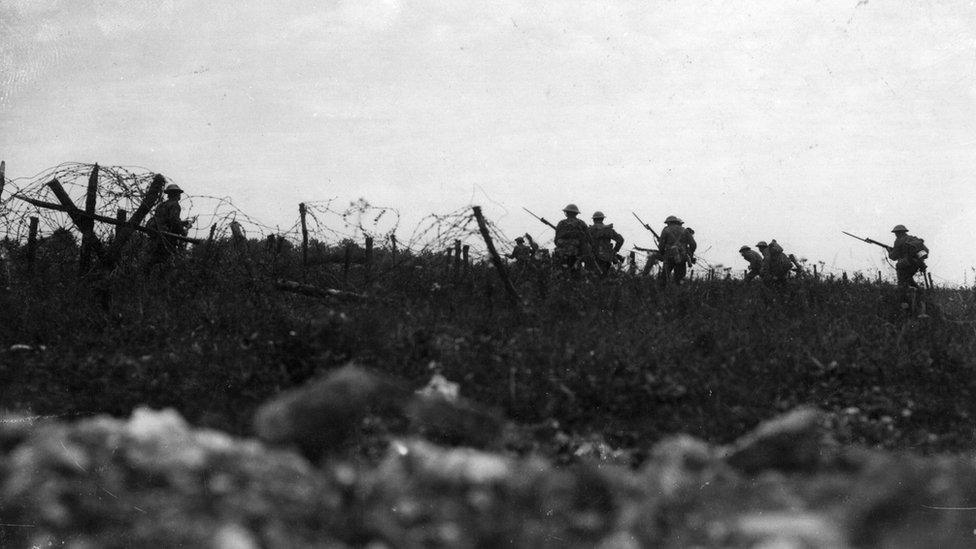Battle of the Somme: Tale of a forgotten Monaghan hero
- Published
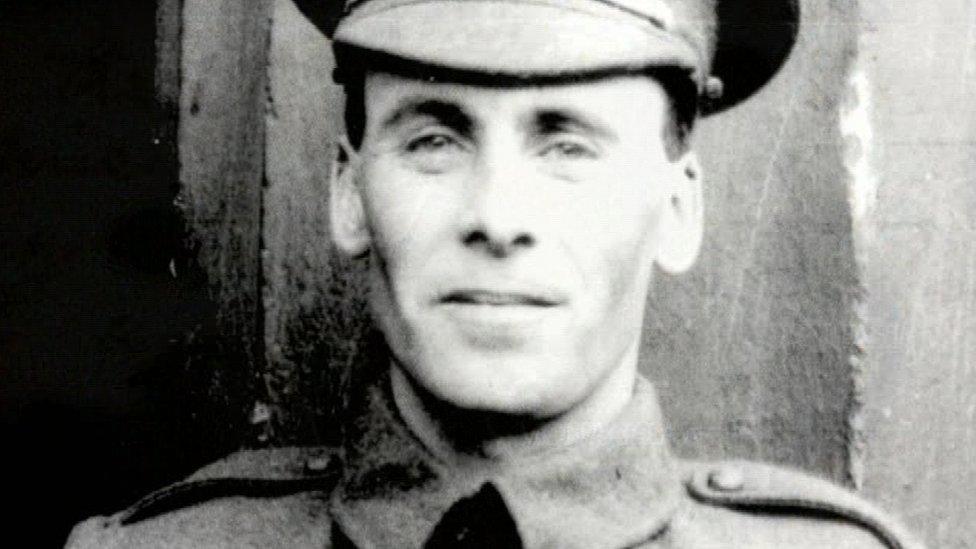
Castleblayney man Thomas Hughes was awarded the Victoria Cross for his actions at the Somme
The 141 day-long Somme offensive was one of the bloodiest and most horrific battles in human history.
Thousands of soldiers lost their lives during the Somme campaign, while just 51 men were awarded the Victoria Cross for their conspicuous bravery.
One of those was a man from County Monaghan - Thomas Hughes from Coravoo, outside Castleblayney.
His story features in a new documentary for BBC One Northern Ireland, Heroes of the Somme.
It tells the gripping story of Hughes and six other men who saw action during the long battle and were awarded the Army's highest military honour.
Among them are two who fought with the 36th (Ulster) Division and two from the 16th (Irish) Division.
Hughes's story is one of a forgotten hero.
Landing
At the time of the World War One, the former farmhand was out of work.
Seeking adventure and a decent wage, he took the decision to sign up and became a private with the 6th Connaught Rangers.
The rangers would later become part of the 16th (Irish) Division, landing at the Somme in the autumn of 1916.
In the offensive on Guillemont on 3 September, Hughes was hit but he was not willing to lie down.
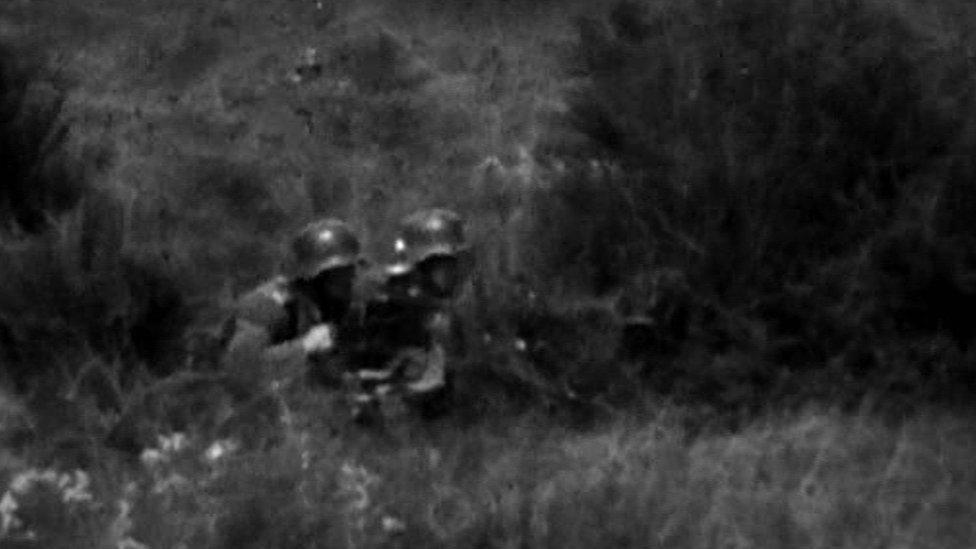
Hughes managed to capture a German machine gun position at the Somme
After making it to the nearest field dressing station for treatment, he insisted on returning to his company to fight on and finish the job.
The 16th (Irish) Division was coming under heavy fire from the Germans.
The deadly MGO8 machine guns were doing a lot of damage.
Rushed
It was at this moment that Hughes decided to take action.
Despite his injuries, he dashed out in front of his company, shot the gunner and captured the gun.
He was hit once again in the process and yet still managed to take prisoners.
In total, Hughes was wounded four times during the battle.
He later said: "So I rushed up, shot both the chaps on the gun and brought it back.
"I remember no more until I found myself down in the dressing station.
"P.S. I forgot to mention I brought four German prisoners with the gun."
Stalemate
His actions allowed the continued advance of the division into Guillemont and for them to seize the town.
It had been an objective which had withstood seven previous assaults.
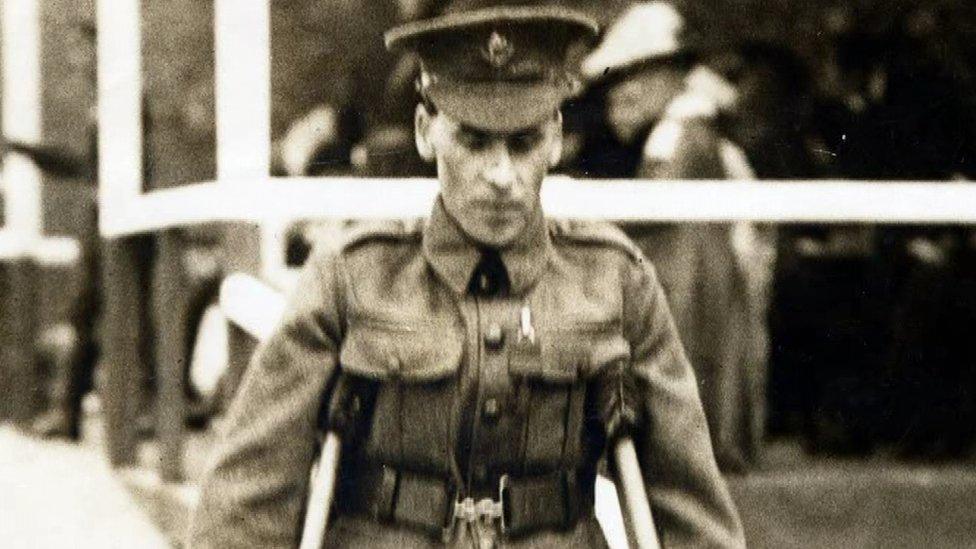
The injuries Hughes suffered at the Somme meant he never walked properly again
Those offensives left thousands dead and wounded.
The capture of Guillemont broke the stalemate at that sector of the Somme.
Hughes survived the Battle of the Somme and returned home.
He was awarded the 33rd Victoria Cross but with a heavy cost to his own health.
Injuries to his legs meant he would never walk properly again.
He was welcomed home in 1917 to his hometown as a hero.
Airbrushed
But that appreciation was not to last.
As the political landscape of post-war Ireland began to change, so too did the views towards war heroes.
In 1922 Ireland was partitioned, Hughes found himself living in the new Irish Free State.
Gradually, the role of men such as Hughes were airbrushed from Irish history.
It is only now that his family are piecing his life together.
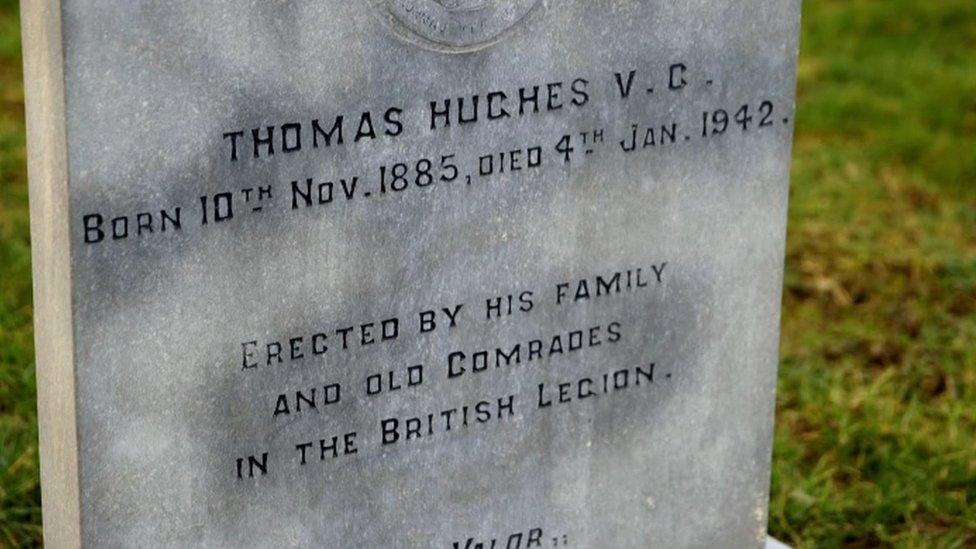
Hughes is buried in his hometown of Coravoo in County Monaghan
In a new documentary for BBC One Northern Ireland, Hughes's great-nephew Peter Hughes says: "Because he took the King's shilling, as everyone called it, he would have been seen as one of the enemy and it just showed how the community feeling had turned - 1917 the hero to 1940s the enemy."
As attitudes towards war heroes have softened in the border areas, Hughes's family have been learning more about him.
Some relatives have visited the area of Guillemont where he fought and say they are proud of what he achieved.
Succeeded
Unfortunately, poverty hit the Hughes family hard after the war.
Hughes spent the latter part of his life in and out of the workhouse and died on 8 January 1942, aged 56.
His sister was later forced to sell his military medals, which were finally bought by former members of the Connaught Rangers, who presented them to Sandhurst Military Museum in the late 1950s.
The only memory left in the town is a headstone put there by the Royal British Legion.
But the 16th (Irish) Division had succeeded where previous battles had failed.
It broke the stalemate and left Guillemont in the hands of the Allies.
The documentary which features Hughes's story also examines the exploits of Lurgan-born William McFadzean, Robert Quigg from Bushmills, and John Holland from County Kildare, as well as John Campbell of the Coldstream Guards, Fred McNess of the Scots Guards and Bernard Freyberg of the Royal Naval Division.
Heroes Of The Somme will be broadcast on BBC One Northern Ireland on Tuesday 5 July at 21:00 BST.
- Published28 June 2016
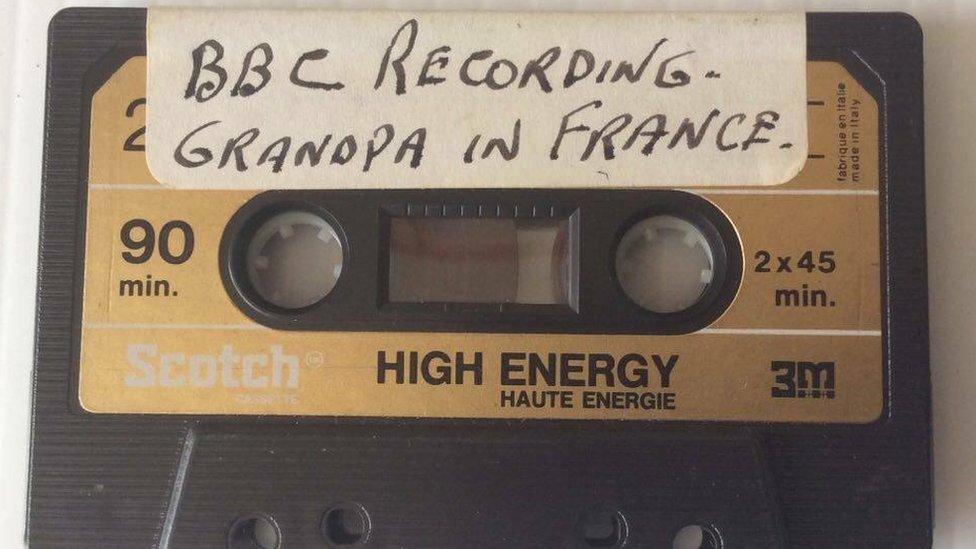
- Published17 June 2016
